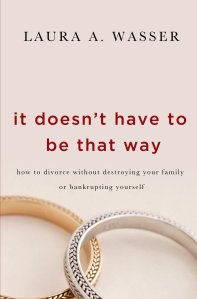
Lately, I’ve encountered lots of people who are confused about whether North Carolina is a no-fault divorce state. In a word, yes. The answer is that this is a no-fault divorce jurisdiction. So…what does that mean?
A no-fault divorce is one in which neither party has to prove marital fault in order to obtain a divorce. All you have to do to get divorced in NC is (a) be separated for at least one year and one day and (b) one of the parties must have lived in the state for the past six months. You don’t have to give the court any reason that you want to get divorced. Nobody has to have cheated. Nobody has to have committed acts of domestic violence. You don’t have to claim irreconcilable differences. Nobody has to have done anything wrong. The facts and circumstances of your divorce can remain between you and your spouse, as far as the court is concerned. You can get a divorce if you meet the two criteria above.
Now, this doesn’t mean that the circumstances of the marriage and the break-up won’t be part of the case if you or your spouse makes claims for alimony, distribution of property, child support, child custody, etc. In deciding those questions, the court may have lots of questions about what went on in the marriage and who did what. But, just for purposes of getting that divorce decree that dissolves your marriage, you do not have to prove that anyone is at fault. Your spouse also cannot stop you from getting a divorce, provided that you can prove that you have been separated for a year and a day, and you have lived here for the past six months. As long as the necessary paperwork is completed and filed accurately and properly, you are entitled to a divorce whether your spouse wants it or not.
Of course, if you are confused about your rights, or what you can and should claim in a divorce, talk to a family lawyer about your unique circumstances. Some of the claims mentioned above, like alimony and division of property, are lost if they are not asserted before the divorce judgment is granted.









